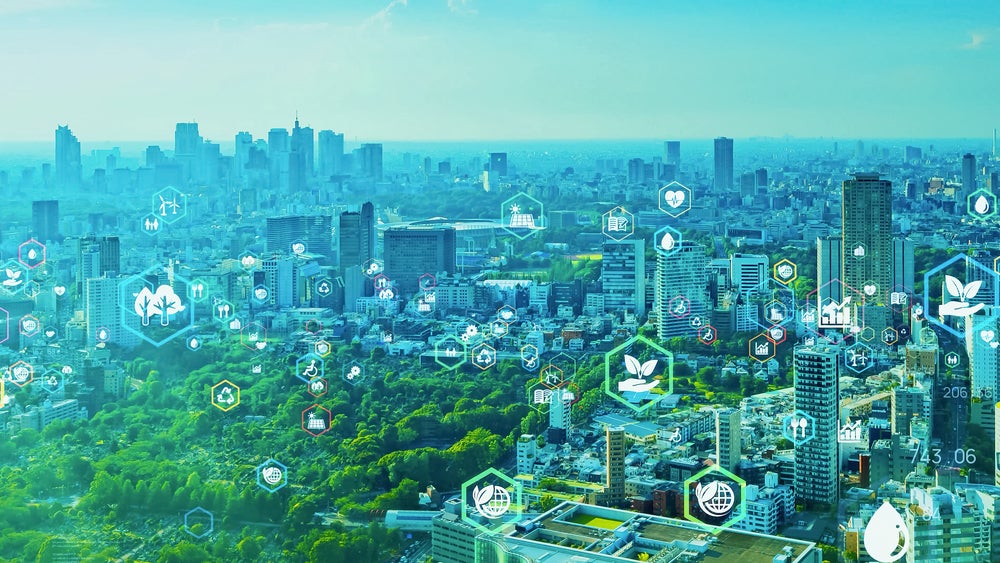The term ‘smart city’ often conjures up images of glimmering skyscrapers, flying taxis, and, generally speaking, the sort of things you might find in a science fiction novel. While it is true that technology is typically part of what makes cities ‘smart’, it is important to remember that a truly smart city is one that solves problems for its inhabitants and that the smartest cities are the ones that do this most efficiently. Technology need not be the means to this end. The city of Rosario in Argentina illustrates this point nicely.
Rosario, Argentina: achieving climate resilience without technology
In 2021, Rosario received first prize in a competition put on by the WRI Center for Sustainable Cities, standing out from a pool of 262 submissions on the theme of ‘inclusive cities for a changing climate’. Rosario was recognized for the measures it has taken over the past two decades to adapt to climate change, measures which, notably, are not based on the sorts of glamorous technology we typically associate with smart cities.
In 2001 Argentina suffered an economic crisis that caused unemployment and food prices to soar throughout the country. In response, Rosario initiated an urban agricultural program in 2002 to provide employment opportunities and improve the city’s food security. The project repurposed land both within and around the city and provided residents with the tools and training to manage these new agricultural allotments. Tilling these allotments created employment opportunities and helped alleviate food shortages.
Furthermore, peri-urban tillage has improved the soil’s ability to absorb water, surrounding Rosario with a man-made defence against the sorts of floods that prompted mass evacuations in 2006. In summation, repurposing land for agricultural use has improved Rosario’s flood resilience, lowered air temperatures (thus improving the city’s heat resilience), and resulted in 2,500 tons of fruit and vegetables being grown locally every year, limiting the need for imports and, as a result, carbon emissions. Not bad for a virtually tech-less initiative!
Rosario is not the only city that has recently gained recognition for a smart city initiative that is largely independent of glamorous technology. Kumasi, Ghana, was one of the winners of the Global Mayor’s Challenge 2021. The city developed a training program for unemployed youth to build low-cost toilets for households without them, thereby combatting the problems of public defecation and poorly maintained public toilets that Kumasi has been suffering from in recent years.
It is not about tech, it is about being smart
The recognition Rosario and Kumasi have received should remind us that cities are ‘smart’ not because of their technological resume, but because they solve important problems efficiently. Technology can play a crucial role in what makes a city ‘smart’, provided it is used appropriately. For instance, in 2021, Atlanta renewed its partnership with Olea Edge Analytics, a smart water company that uses AI to identify water meters in industrial facilities that are malfunctioning. Not only is this estimated to save Atlanta tens of millions of dollars in recovered revenue, but it will also improve the city’s water efficiency. Considering the current economic conditions and the prospect of future droughts as our planet heats up, Atlanta’s use of AI to save money and water can certainly be considered ‘smart’.
How well do you really know your competitors?
Access the most comprehensive Company Profiles on the market, powered by GlobalData. Save hours of research. Gain competitive edge.

Thank you!
Your download email will arrive shortly
Not ready to buy yet? Download a free sample
We are confident about the unique quality of our Company Profiles. However, we want you to make the most beneficial decision for your business, so we offer a free sample that you can download by submitting the below form
By GlobalDataIn conclusion, cities should not prioritize tech for tech’s sake but should focus on identifying the key issues facing their inhabitants and how to resolve them in the most cost-efficient manner possible.








